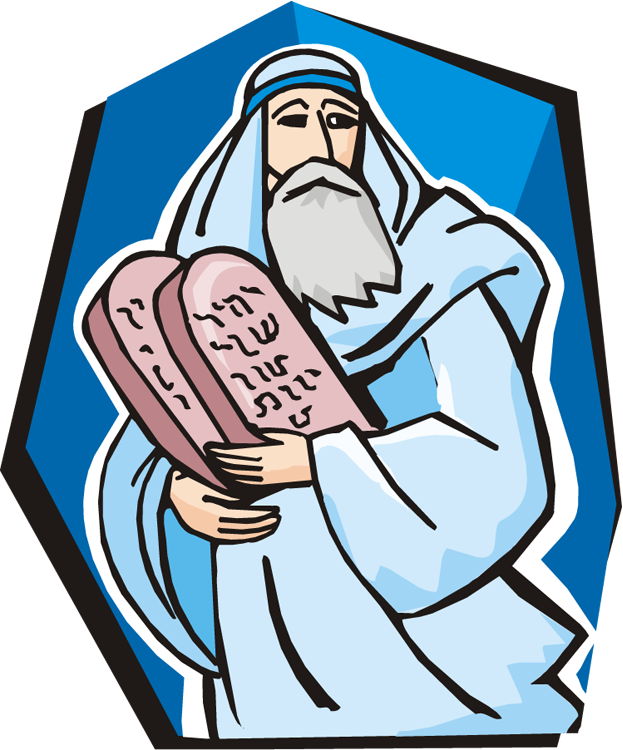Yes, this is another long video by Bible expert, Nathan Lawrence, but this is a complex, multi-faceted subject with many contextual and historical threads. So if you want to understand what the Bible has to say about the current war between the Jews and the Palestinians (Hamas et al), then you will want to watch this. Nathan tags a lot of bases in this video explaining the 4,000 year old roots of this conflict, who Edom is in Bible history and prophecy and how that relates to Jews and Christians, as well as to Islam and Hamas. You will also learn what the Bible prophesies will happen in the future to all of these people groups and how this conflict will be resolved. You will not hear any of this in the current news reports, but this understanding will help you to put all of the pieces of the puzzle together.
Category Archives: Children of Israel/Israelites
Nitzavim Deuteronomy 29—The Saints R Israelites, Not Gentiles!
From Genesis to Revelation, the Bible is full of prophecies about the people of YHVH—i.e., Israel. He revealed his Truth to Israel, he made covenants with Israel that revealed His path to physical blessings and spiritual redemption or salvation through the promised Israelite Messiah. Those who are outside of Israel (i.e., the Gentiles) have no such blessings or covenants, for they are without God and without hope (Eph 2:12). The Bible is clear. ALL those who are IN Yeshua the Messiah, that is, who have a spiritual relationship with Him, are now the offspring of Abraham and are no longer are Gentiles (Gal 3:28–29). The fact is that Yeshua is coming back for one bride—an Israelite bride, NOT two brides—a Jewish bride and a Gentile bride. He is not a polygamist. Furthermore, there is no Gentile gate in the New Jerusalem (Rev 21:12)—Gentiles WILL NOT be there—only redeemed Israelites who are in Messiah and part of the nation of Israel and within the covenant promises that YHVH made to of Israel. Learn about this and more in this video.
The One New Man Truth Vs. the Jew-Gentile Heresy
If your are a blood bought disciple of Yeshua the Messiah (Jesus Christ), then you are no longer a Gentile, according to Paul in Ephesians chapter two. Moreover, there is NO Gentile gate in the heaven on earth to come that the Bible refers to as the New Jerusalem, since Gentiles are not allowed there—only redeemed Israelites, which the Bible calls the one new man. Scripture clearly teaches that in the church the distinction between Jew and Gentile is gone, so do not refer to yourself as a Gentile, unless you want to go against the Truth of the Bible. This video explains this seldom taught biblical truth that the mainstream church blatantly overlooks. This is a truth that is bound to shake some people and, at the same time, spiritually empower others who have ears to hear what the Bible really says on the matter. Once again, the idea of the Jew-Gentile paradigm is another church tradition of men that has made of none effect the Word of Elohim (Mark 7:13).
Nuggets from Deuteronomy 1 and 2

Deuteronomy 1
Deuteronomy 1:1, Words.The Hebrew word is devarim, which is the plural of the generic Hebrew word for word, which is devar/debar,and is the Hebrew name for the last book of the Torah. Devar is related to several other well-known Hebrew words such as midbar/wilderness (Exod 7:16; Num 1:1; 14:33; Deut 1:1,31; 2:7; 8:2,16), b’midbar/in the wilderness (Num 1:1),and deveer/oracle, sanctuary, holy of holies (1 Kgs 6:16; 2 Chr 5:7,9; Ps 28:2). Look up these words in your Bible to see how they are used. How are they related to each other with respect to hearing or being led by the Word of Elohim?
Deuteronomy 1:1, Wilderness…plain…Red Sea…Paran…Tophel and Laban…Hazeroth…Dizahab. Seven names are mentioned here, which are code words for major sins that Israel committed against YHVH while wandering in the wilderness. The younger generation may have been too young to remember what happened at those places, but Moses was giving them a history lesson, so they wouldn’t repeat the mistakes of their forefathers as they were about to enter the Promised Land. (See below for a discussion of the sin that each of these names represents.) If one were to quickly read over these words and fail to realize that they are code words or Hebraisms representing historical events, one would pass over some rich Torah treasure. For Americans, words like 911, Ground Zero, Katrina, Pearl Harbor, Christmas, D-Day, JFK and FDR conjure up all sorts of images and emotions. This was true of the Israelites when they heard the names in verse one.
Deuteronomy 1:2, Eleven days. Horeb (Mount Sinai) was only an 11 days’ journey to the edge of the Promised Land (Kadesh Barnea), yet because of Israel’s bad conduct (disobedience to YHVH’s commands, lack of trust and faith in YHVH’s Word evidenced by complaining, murmuring and even outright rebellion) they were made to wander in the wilderness for 40 years. What is holding you back from going forward in your spiritual walk? What sin, what fear, what wrong beliefs or false religious concepts are you refusing to let go that are hindering you? If you are serious about serving YHVH, it is time to repent and go onward and upward in Yeshua!

Deuteronomy 1:5, Moses began to declare this law (KJV). This is a poor translation of the Hebrew. A better translation would be: “Moses began to explain this law [Torah]…” (NKJV), or “Moses undertook to expound this law [Torah] … “ (NAS), or “Moses began explaining the Torah …” (ASET). To whom was Moses explaining the Torah? (Read verse 39 and cp. with Deut 6:7). Moses was the dutiful parent faithfully teaching Torah to the younger generation about to enter the Promised Land. How are you preparing the young people in your life to enter into the Promised Land of YHVH’s eternal kingdom?
Deuteronomy 1:11, Add to you a thousand times yourselves. If the children of Israel numbered between several million (there were approximately 600,000 men of fighting age numbered among the Israelites), then when was this prophetic promise of YHVH ever fulfilled in Israel’s history? Where are the several billion Israelites (1000 times two to three million) today? (See Gen 26:4; 32:12; Exod 32:13 cp. Hos 7:8; 8:8; Eph 2:11–19.)
Deuteronomy 1:12–13, Choose…men. Choosing leaders to help govern Israel and to maintain the peace was of first priority because the people were prone to strife and complaining. Without a dispute and conflict resolution plan in place, the nation of Israel would have been one of total anarchy, strife and confusion.
Deuteronomy 1:13 and 15, Provide for yourselves distinguished men, who are wise, understanding, and well known … so I took … of your tribes distinguished men, who were wise and well known. Compare the two lists. What character trait is not listed in the second list? Why? The word understanding (biyn, Strong’s H995/TWOT 239) means “discerning, perceptive, discreet, intelligent, observant and prudent.” Why did Moses have such a difficult time finding understanding men to be leaders in Israel? Are people any different today? Only two men out of hundreds of thousands had understanding: Caleb and Joshua.

Deuteronomy 1:26–28, Moving forward in the face of obstacles. Many times in our spiritual walk we are just at the point of spiritual breakthrough, but we receive an evil report about some spiritual giants that is blocking our forward movement and our resolve to advance melts. It seems sometimes that if we could just see what the future holds for us that it would be much easier for us to go forward! Yet Yeshua said, Blessed are those who haven’t seen, yet still believe in YHVH’s promises (John 20:29). Do you have what it takes to go on without being deterred by the world, the flesh and the devil? How can one go forward in faith if one cannot see where one is going? It gets down to personal and intimate relationship with your Heavenly Father, through Yeshua. He directs us through his Spirit. Can you hear his voice with your spirit when he tells you, “This is the way, walk you in it,” (Isa 30:21)?
Continue readingAre Non-Jewish Christians Gentiles, Jews or What?

How many times have you heard non-Jewish Christians refer to themselves as “Gentiles”? Or Christian teachers talk about “the Jews” and “the Gentiles”—the latter label referring to non-Jewish believers in Yeshua or Jesus the Messiah? Or even Jewish believers in Yeshua refer to their Christian brothers and sisters as “Gentiles”? Is this a biblically accurate label? If you are a believer in Yeshua and non-Jewish ethnically, are you still a Gentile? This is the question we will answer below. As numerous end time Bereans (i.e. those who are deeply studied in the Bible) are finding out, many mainstream Christian traditions that are popularly taught and believed in reality do not line up with the Scriptures.
The Scriptures Call the Israelites Gentiles
When one actually studies the Bible, rather than just listening to others talk, preach or teach about it, it is amazing how truths emerge that do not line up with many popular belief systems in the mainstream Christian church. For example, many Christians would be surprised to find out that in numerous places, the Scriptures refer to the Jewish people as “Gentiles.” Yes, this is not a typo, but a biblical truth. Why is this? Perhaps it is because our understanding of what a Gentile is does not line up with the Bible.
One example where the Hebrew people are called “Gentiles” is found in Isaiah 1:4 where YHVH calls Israel a sinful nation. The word nation is the Hebrew word goy meaning “gentile” or, in a spiritual sense, “worldly or secular.” This is not a complimentary moniker on the part of the God or Elohim of Israel.
This is only one of a number of passages in the Scriptures where Israel itself is referred to as being “gentile.” A quick study of the Hebrew word goy will bear this fact out. This word is translated in the Tanakh (Old Testament) as nation 374 times, as heathen 143 times, as Gentiles 30 times, and people 11 times. Whenever the word gentile is used in the KJV Bible it is the word goy. According to Strong’s Concordance, the meaning of goy or gowy is “a foreign nation; hence a Gentile; also (fig.) a troop of animals, or a flight of locusts.”According to Gesenius Hebrew-Chaldee Lexicon,the word goy means “a people, a confluence of men,” and “contextually in Holy Scripture it is used to refer to the other nations besides Israel, the foes of Israel, and strangers to the true religion of Israel.”
Amazingly, there are times when this word refers specifically to Israel (e.g. the descendants of Joseph in general: Gen 48:19; to the southern kingdom of Judah or the Jews when it forsook Elohim and its covenant with him and became like the surrounding heathen nations [see Isa 1:4; 9:1], and to all twelve tribes of Israel [see Isa 26:2; 49:7; Ps 33:12; Gen 12:2; 35:11]).
There are numerous other instances in the Scriptures where the words goy or goyim (the plural of goy) are applied to the descendants of Abraham. In these cases, the Scripture’s use of the term is unbiased and lacks any of the pejorative implications that have been applied to the term subsequently (e.g. Gen 17:4, 5, 6, 16; 18:18; 25:23; 46:3; Exod 19:6; 33:13; Deut 4:6, 7, 8, 34; Ezek 37:22). In these cases, the word goy simply means “a people or ethnic group” regardless of race or ethnicity. The Greek word ethnos as found in the Testimony of Yeshua (New Testament) is equivalent in meaning to the Hebrew word goyim. Our English word ethnic or ethnicity derives from this Greek word.
The Apostle Paul on the Subject
So now that we know what the Hebrew word behind the English word Gentile means and how the Bible uses this word, let us answer the question: “Are non-Jewish Christians Gentiles, Jews or what?”
Consider this fact: Paul the apostle says in a number of places that those who are in Christ or the Messiah (i.e. Christians) are “the children” or “seed” (literally “sperm,” which is the meaning of the Greek word behind the English term) of Abraham (Gal 3:29). Elsewhere, he declares that Abraham is the father of Christians—both Jews and non-Jews (Rom 4:16; 9:8–11), and that Christians are the “sons of Abraham” (Gal 3:7). Paul then goes on to say that in the Christian church there is no longer Jew or Greek (i.e. Gentile), but that in Messiah (Christ) all redeemed believers are literally the offspring, children or descendants of Abraham (Gal 34:28–29). Paul makes no qualifications when making this declarative statement. He does not say that the non-Jewish Christians are spiritual descendants of Abraham, or symbolic descendants of Abraham. He does use metaphor or symbolism. He simply makes the statement as a matter of act.
Continue readingNumbers 13 and 14—Joshua and Caleb Vs. the Rebels

Numbers 13
Numbers 13:6, Caleb the son of Jephunneh.
Caleb—A Man Full of Love for YHVH and His People

Although Caleb is listed here as being from the tribe of Judah, he nevertheless was of Canaanite heritage having become part of Judah when the Israelites conquered the land of Caleb’s ancestors.
Elsewhere, the Torah lists Caleb as the son of Jephunneh, the Kenizzite (Num 32:12, also Josh 14:6, 14). Who were the Kenizzites (also Kenezite)? They were among the original inhabitants of Canaan (Gen 15:19), that Israel eventually dispossessed when taking the Promised Land. This people originated from Eliphaz, the oldest son of Esau. Thus, Caleb was an Edomite who accepted the Elohim of Israel and became grafted into the tribe of Judah (Josh 15:13). Throughout the Tanakh, Edom (a nickname for Esau) remains a sworn enemy of Israel maintaining a perpetual hatred for YHVH’s people and constantly covetous of their land even into modern times. In fact, the case could be made that the modern day Palestinians, if not descendants of Edom, at least manifest the same hatred for Israel as did the ancient Edomites. It is out of this people that Caleb comes.
The Hebrew name Caleb literally means “dog,” although it can have the favorable connotation of faithful, loving and tenacious like a dog. Some Bible students have noted that the Hebrew name Caleb or Kalev can also mean “all heart” since this name is comprised of two Hebrew word: kol meaning “all” and lev meaning “heart.” Indeed, in his life, Caleb exemplified his name’s meaning in his faithfulness to the Elohim of Israel, in his faith and tenacious zeal to go up and to conquer the Promised Land as YHVH commanded as well as his love for YHVH, YHVH’s people, YHVH’s Torah and the land of Israel.
Evidently Caleb defected from his own tribal peoples and joined the Israelites, while they were wandering in wilderness and before they came up to take the Promised Land. This speaks volumes about Caleb’s character in that he was willing to forsake his pagan heritage and align himself with the Elohim and people of Israel years before they actually dispossessed his people of their ancestral land. Caleb remained aligned with those who took that land and killed his heathen family.
Indeed, Caleb was a unique individual in that he chose a spiritual path less traveled and one that was unpopular, and he clung ardently to that path despite, at times, vicious opposition. The Torah records that he had a different spirit and that he fully followed Elohim (Num 14:24). For this, YHVH promised him an inheritance in the Promised Land (ibid.). May we be like Caleb!
Numbers 13:16, Moses called Hoshea the son of Nun Yehoshua.Prior to sending the spies forth, Moses renames his assistant Hoshea(whose name means “salvation”) to Yehoshua(or Joshua,meaning “Yah [short for Yehovah] Saves”) by adding the Hebrew letter yud /H to Hoshea’s name so that his name would now begin with the first letter of YHVH’s name—the English letter “Y”. What was the prophetic significance of this name change? Who is it that will lead us into our spiritual Promised Land or our spiritual and eternal rest? (See Heb 4:8 and 11, especially verse 8, where the author shows that Yehoshua was the foreshadow of Yeshua.) Do you possess a vibrant and active faith in Yeshua? Is he the Chief Cornerstone of your spiritual house, the Author and Finisher of your faith and the Captain of your salvation to lead you into the spiritual rest of his eternal kingdom? Are you faithfully following him as the Israelites followed Yehoshua/Joshua into the Promised Land?
Numbers 13:32, It is a land which devours its inhabitants.The Jewish commentators in The ArtScroll Stone Edition Chumash cogently observe, “Such misinterpretations are typical of people who choose not to have faith. Invariably they interpret events in a way that will conform to their own notions” (p. 803). Having faith in YHVH is a conscious choice that one has to make. Faith does not come automatically. Fear, doubt and unbelief do, however, and are part of the fallen nature or evil inclination that all men possess.
Paul talks about leaving behind the fallen, faithless, sin-bent nature (Rom 7) and moving into a walk of faith in the Spirit of Elohim when in Romans 8:1–2 he contrasts the “law of sin and death” with “the law of the Spirit of life in Messiah Yeshua.” Through Yeshua we become more than conquerors (Rom 8:37). Moreover, 1 John 5:4 tells us, “For whatever is born of Elohim overcomes the world, and this is the victory that overcomes the world, even our faith[i.e. faith in Yeshua who is the Author and Finisher of our faith, the One who gives us the gift of faith, the One in whom we have faith, and on whose words and promises believers stand firm and secure as a house built on a rock].”
The fear of death is the mother of all fears and is what plagued the disbelieving Israelites. Through identification with Yeshua’s death, burial and resurrection at baptism (Rom 6:3–6) we too (through Yeshua) can be victorious over the sting of death and the grave, which is the death sentence upon all Torah-lawbreaking mortals (read 1 Cor 15:47–58 and rejoice!).
Numbers 14
Numbers 14:20–24, I have pardoned.YHVH’s general pardon versus salvational pardon of sin. This Bible passages teaches us that there is a general pardon of sin of which all humans are the recipient, and a salvational pardon of sin that only a few receive.
YHVH pardoned Israel for the sin of disobedient unbelief, but forgiveness in this case only meant that YHVH’s judgment would not come upon them for this particular sin. This pardon did not expiate them of all their sin resulting in eternal life of which entering into the Promised Land was a prophetic antetype.
This is the same genre of pardon that YHVH extended to Adam and Eve after they sinned by eating of the forbidden fruit. They did not die immediately, but were able to live out their lives under that pardon, but it did not guarantee them eternal life.
Later we read that in verse 23 that YHVH would not allow this unbelieving generation of Israelites to see the Promised Land because they had rejected Elohim and refused to obey him. This was in contradistinction to Joshua and Caleb who had a different spirit in them and fully obeyed YHVH (v. 24).

What can we learn from this? In general sense, YHVH pardons all humans for the sins they commit. If he did not, his judgment would come upon them immediately, for the wages of sin is death, and they would be no more. But humans keep sinning, rejecting Elohim, and yet he graciously, in most cases, allows them to live out their physical lives, but this does not mean that they will have eternal life. This is YHVH pardoning them momentarily, but not saving them or granting them eternal life.
Only those, like Caleb and Joshua, who have a different spirit (i.e. the Holy Spirit) and a personal spirit or heart that is inclined to fully obey him will be rewarded with eternal life in the Promised Land of YHVH’s eternal kingdom.
Numbers 14:22, Have tempted me now these ten times. Israel, while in the wilderness, tested YHVH ten times and refused to heed his voice. According to the Jewish sages, these ten times were: Exodus 14:11; 15:24; 16:3; 16:20; 16:27; 17:2; 32:4; Numbers 11:1; 11:4; and here (i.e. believing the spies’ evil report). Look at each of these incidents where Israel “tested” YHVH and preferred to walk in doubt and unbelief rather than to trust YHVH’s Word. These are examples for us to learn from (1 Cor 10:11). Be blatantly honest with yourself: how many times have you tested your Heavenly Father in the same areas Israel did?
Numbers 14:40–45, We…will go up. Here we see the Israelites preparing to go and to possess Canaan in their own strength and against the will of YHVH. Where did this carnally-driven endeavor lead them?
Matthew Henry discusses how this act demonstrates how the carnal mind is enmity against YHVH (Rom 8:7), for when he bade them to go, they would not, and when he forbade the children of Israel from going, that is when they decided to go. They distrusted his strength, and trusted in their own. What was the result of their expedition? Failure!
Let us take warning from the fate of Israel, lest we perish after the same example of their unbelief. Let us go forth, depending on YHVH’s mercy, power, promise and truth. Do you think that the Israelites were rationally aware of what they were doing? We can easily look back in 20/20 hindsight and see the folly of their ways, but let us pray that YHVH gives us the discernment to see when each of us is guilty of the same in our own lives.
From Psalm 37,
Delight yourself also in YHVH, and He shall give you the desires of your heart. Commit your way to YHVH, trust also in Him, and He shall bring it to pass.…Rest in YHVH, and wait patiently for Him…The steps of a good man are ordered by YHVH, and He delights in his way.

